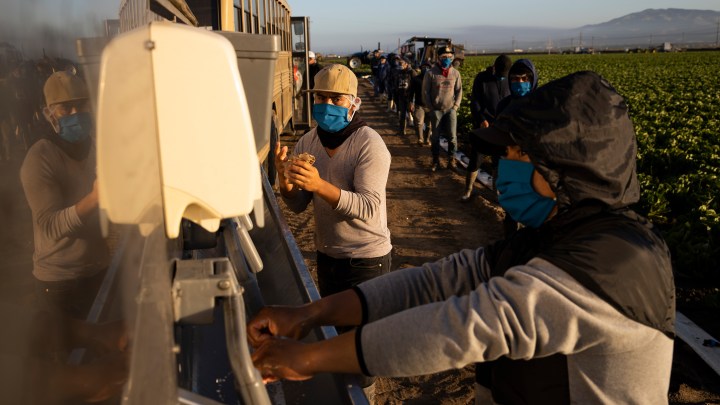
Which essential workers should be prioritized for vaccines?
Which essential workers should be prioritized for vaccines?

Americans could start to receive doses of the first COVID-19 vaccine next week. Frontline health care workers and residents of long-term care facilities will be first to get the shots, according to Centers for Disease Control and Prevention guidance. Essential workers will be considered next, but with limited vaccine doses and a lot of workers considered essential, the jockeying has already started over which ones should go to the front of the line.
Federal guidelines consider almost 70% of Americans to be working in essential industries. So there are now a slew of companies and trade groups making their cases to federal and state authorities.
“There’s no doubt that there’s going to be a healthy fight over who should be prioritized when it comes to access to vaccines,” said Geoff Freeman, CEO of the Consumer Brands Association.
His organization is fighting for packaged goods workers who keep things like toilet paper and cleaning supplies on shelves.
KatieRose McCullough, director of scientific and regulatory affairs for the North American Meat Institute, is making the case for meatpacking workers.
“When we aren’t able to operate safely for our employees, what happens is a backup of food,” she said, noting many meat and poultry workers come from vulnerable populations and have limited access to health care in the rural areas they live.
Pilots, bankers, ride-share drivers and other groups say their workers need the vaccine first.
“These are really complicated decisions, and we have to balance the tradeoffs,” said Francine Blau, a Cornell University labor economist. Some workers have greater contact with the public, some keep food and supplies flowing, while some are important to society’s functioning, like teachers.
“We really have learned how essential schools are to our economy,” said Kathi Griffin, the president of the Illinois Education Association. She said while many educators are able to work remotely, getting them safely back into classrooms will benefit children and their parents, who can then focus on their own jobs.
The CDC will continue to consider how to best distribute the vaccine, but ultimately it’s up to each state to decide who gets the shots when. Currently, some states include teachers as a priority, while others put them behind prison guards and food workers.
There’s a lot happening in the world. Through it all, Marketplace is here for you.
You rely on Marketplace to break down the world’s events and tell you how it affects you in a fact-based, approachable way. We rely on your financial support to keep making that possible.
Your donation today powers the independent journalism that you rely on. For just $5/month, you can help sustain Marketplace so we can keep reporting on the things that matter to you.


















